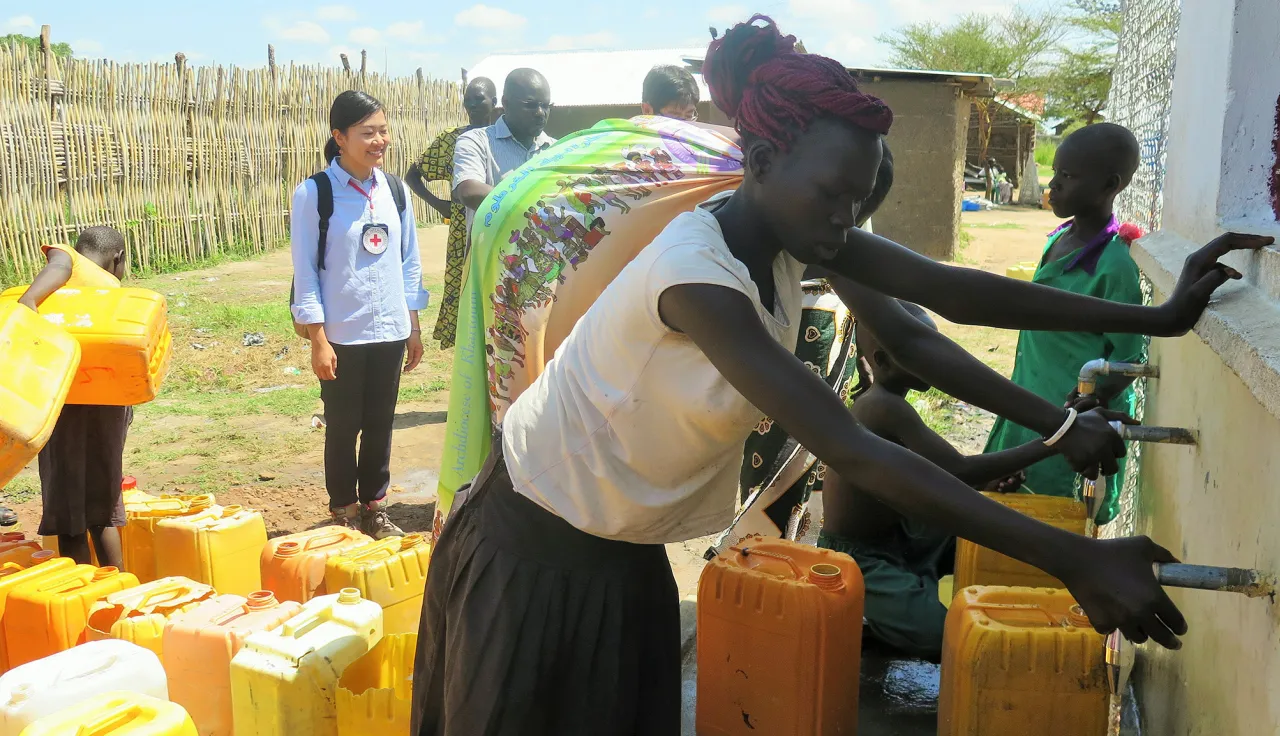South Sudan: Countering the spread of preventable disease

15 October 2015, Juba - Today marks Global Handwashing Day. Sadly, the challenges in South Sudan have gone beyond mere handwashing with a cholera outbreak that has had a devastating effect on many in the country. This year alone, more than 1,800 cholera cases including 47 deaths were reported, with the capital Juba and Bor town (in Jonglei state), being the two main cities affected. In response to the outbreak, the ICRC has implemented urgent prevention measures and within months has improved access to water for over 55,000 people in the communities most hardly hit.
"The provision of clean drinking water at the source is vital to ensure people are safe from contamination and the ICRC is very invested in this regard," said Juerg Eglin, the ICRC's head of delegation in Juba. "People were experiencing long queues at water points and hand pumps were frequently breaking. Many were left with the only desperate option of using untreated raw water supplied by water tankers that collect water from the Nile".
To reverse this dangerous course, ICRC intervened in the outskirts of Bor (Achingdir, Langbar and Malou), where a water treatment unit was installed. The unit allowed water trucking to various distribution points, benefitting over 7,200 people who gradually gained better access to safe drinking water with significant reductions in crowding at the hand pumps and no residents observed fetching water directly from the river, as was common practice. In parallel, the South Sudan Red Cross (SSRC) ran local public awareness campaigns which have directly improved people's habits.
In Juba, ICRC installed a mass water treatment unit along the Nile with a daily production capacity of 700m3. In addition, nine temporary water distribution points were installed (bladders and tanks with distribution ramps) in selected areas in Gudele I (Blocks 4 and 5), Gudele II (Gurei East, Hai Baraka and Jebel Yesua) and New Site (Angels Primary School, Market, Chaplain Church and John Garang School). With three to four trips daily, ICRC has been trucking water on a regular basis to these points, while 80 private trucks daily are now using water from the treatment unit. In Juba, 47,000 people now have access to safe drinking water through these emergency interventions.
In Juba and Bor, the SSRC has been instrumental in supporting these emergency interventions following the outbreak. In addition to the awareness campaigns, each water point was manned by a SSRC volunteer who was managing the pumping and distribution of water as well as running basic water analysis.
ICRC also ran upgrades of six boreholes in Juba (Gumbo, Rock City, Munuki, Joppa, Gurey and Kator). The works consisted of replacing the hand pumps with the installation of submersible pumps powered by solar panels, storage tanks and water kiosks. This has reduced queuing time and energy costs quite considerably in these specific sites to the benefit of 15,000 people. Following completion, all the water points have been handed over to the Water Management Committees (WMC) which are established by the communities themselves through the support of their respective 'payam' (town) administrative office.
Beyond the emergency response to the cholera outbreak and by way of enhancing long term sustainability in the provision of clean drinking water in coping with a steady and increasing demand, ICRC has donated a generator to replace a broken unit at the Juba Treatment Plant. This has helped the South Sudan Urban Water Corporation (SSUWC) double its daily production capacity. The SSRC also reinstalled surface water treatment facilities in Torit, providing 180,000 litres of safe drinking water to 12,000 people.
For further information, please contact:
Layal Horanieh, ICRC Juba, tel: +211 (0)912360023



